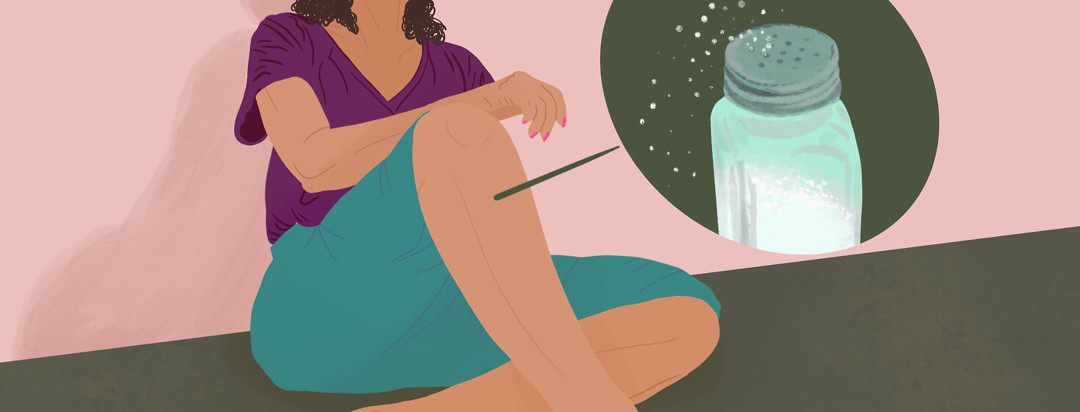Cystic Fibrosis and Salty Skin
Reviewed by: HU Medical Review Board | Last reviewed: September 2019 | Last updated: April 2024
Cystic fibrosis (CF) is a genetically inherited disease that causes persistent lung infections and makes it difficult to breathe. It affects the lungs the most, but also the digestive system, including the pancreas, liver, intestines, and kidneys. CF may also impact the ears, nose and sinuses, and the bones and joints.1-3
Salty skin as a symptom of cystic fibrosis
People with cystic fibrosis tend to have two to five times the normal amount of salt in their sweat, so often the first CF symptom parents notice is that they taste salty when they kiss their baby.
The salty skin of babies with cystic fibrosis is so distinctive that an ancient folk saying from Northern Europe is: “Woe to that child which when kissed on the forehead tastes salty. He is bewitched and soon must die."3,4
What causes salty skin in cystic fibrosis?
People with CF have a defective cystic fibrosis transmembrane conductance regulator (CFTR) gene, and this mutation prevents the CFTR protein from working properly. CFTR proteins are found in several organs, including the lungs, gastrointestinal tract, and sweat glands.1-3
CFTR proteins help our cells move chloride (Cl-), an element in salt (sodium chloride, NA+Cl-). Normal sweat includes water and salt, just much less salt than in a person with CF.
With cystic fibrosis, salt cannot move as it normally does through the cells that line the sweat duct. Since sodium and chloride travel together as one molecule, the sodium/salt ends up excreted in the sweat.5 This makes for very salty sweat, though it is not thick and sticky like other CF secretions.6
Treating salty skin
Even though people with CF lose more salt than normal in their sweat, this is rarely a problem unless the person is in a hot climate or exercising hard. That is because our food usually contains enough salt to replace any lost in sweat. But, if they lose too much salt due to extreme temperatures, vigorous exercise, or fever, salt is easy to replace. In fact, those with CF are often told to eat salty snacks and add as much salt as they’d like to their foods and water.
If someone with CF is going to be in hot weather, exercise hard, or has a fever, drinking extra water with a little salt added and eating more salty foods can prevent the dangers of too little salt, which are dehydration or heat stroke.6
Other symptoms of cystic fibrosis
The most common symptoms of cystic fibrosis are:
- Slow weight gain or failure to thrive even with a good appetite
- Wheezing, coughing, pneumonia
- Greasy, bulky stools or diarrhea
- Nasal polyps
- Chronic sinus infections
- Clubbing or enlargement of the fingertips and toes1
